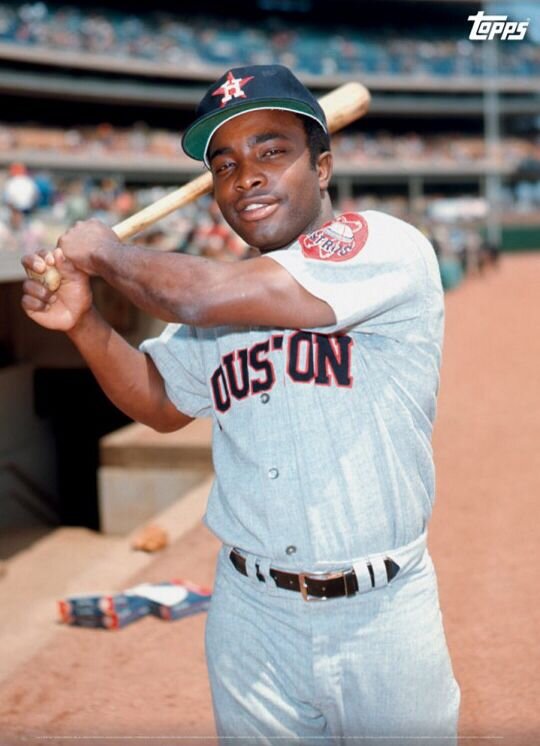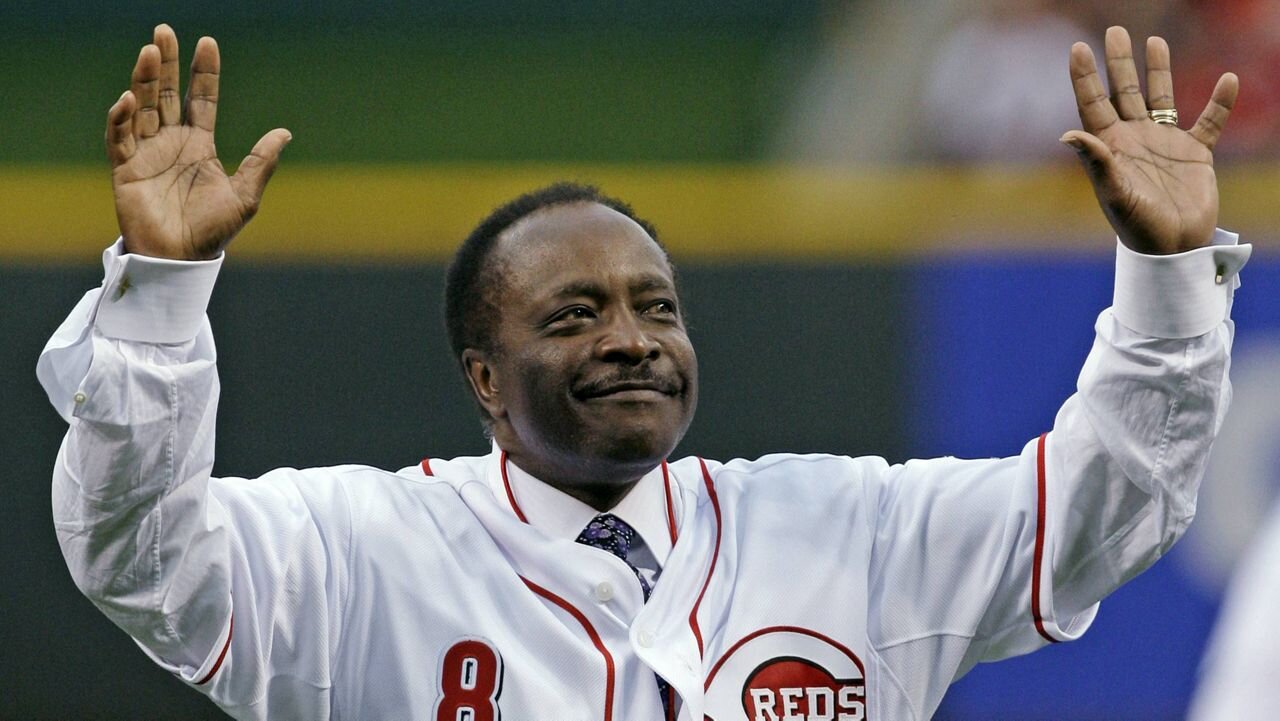Elliott: Larry Dierker remembers HOFer Joe Morgan
By Bob Elliott
Canadian Baseball Network
Larry Dierker broke into the majors at age 17 with the Houston Colt .45s on his way to a 14-year major league career.
You have to have a good memory -- not to mention the ability to locate and compete no matter how tired your arm is to last that long. Dierker won 139 games, pitched 2,333 2/3 innings and struck out 1,493 in his career, mostly for the Houston Astros.
The former Astro ace can’t remember every pitch of every at-bat in every inning in each and every game, yet he vividly recalls one outing against the San Diego Padres.
Like most stud pitchers, he did not like visitors to his mound, whether it be a manager, a pitching coach or an infielder arriving with advice.
One night Dierker walked the lead-off man on a 3-2 count and the next hitter reached on a base hit, barely out of the reach on an infielder.
Next, was a room service double play ball -- the kind coaches hit to infielders during pre-game infield -- to his second baseman, who booted the ball.
Instead of a double play the bases were jammed -- with Padres -- and no one out.
“I’m standing there and I’m thinking ‘I should be in the dugout ... instead we’ve got nobody out and they’re loaded,” Dierker said. The 5-foot-7 second baseman, put his right hand on the shoulder of the 6-foot-4 Dierker.
“He told me ‘I’m glad we’ve got you on the mound, because you are the only guy who can get us out of the mess,’” the Houston ace recalled.
Dierker said that the operative word used was “us.”
“From that point on I always paid attention, I always tried to do anything to prevent someone’s error any way from landing in the run column,” he said. “One of the things you have to do is to protect the other guy’s mistakes.”
Dierker got the first out of the inning -- the bases remained loaded -- and then the second baseman turned what he often called “the best double play I ever turned.”
Joe Morgan honoured in Cincinnati
* * *
The undersized second baseman broke in with Houston, made his way from the Astros to the Cincinnati Reds’ Big Red Machine, the San Francisco Giants, the Philadelphia Phillies, the Oakland A’s and Cooperstown, N.Y.
The mound whisperer was Hall of Famer Joe Morgan, who died Sunday Oct. 11 at age 77.
The industry’s most exclusive club had 82 living members on Jan. 1. Since then Cooperstown has lost Al Kaline, Tom Seaver, Lou Brock, Bob Gibson, Whitey Ford and Morgan. Now, the club is down to 76 with former Los Angeles Dodgers manager Tommy Lasorda the senior member at age 93.
“Last time I saw Joe was in Cooperstown when Jeff Bagwell was inducted (in 2017),” Dierker said. “Joe had a cane for his bum knee, but he said he’d be playing tennis in two weeks. I hadn’t heard anything ... “
After parts of nine seasons with Houston, Morgan was traded to the Reds, where Johnny Bench, Tony Perez, Pete Rose and Morgan formed The Big Red Machine.
Nov. 29, 1971 with Ed Armbrister, Jack Billingham, Cesar Geronimo and Denis Menke for Tommy Helms, Lee May and Jimmy Stewart. Helms took Morgan’s place at second. When Rose was under investigation we asked Helms about Rose.
“He was a great guy to go for a beer with,” Helms said. “He didn’t drink, so we’d order two beers and I’d get to drink both.”
* * *
Dierker doesn’t remember the names of the hitters he faced that inning, however, the mound talk was unforgettable.
“I was still upset on the 3-2 pitch -- that was a strike,” Dierker said. “Then later Joe fumbles it. I’m standing here thinking, ‘What in the world?’ And here comes Joe ... I’m still fuming over the leaf-off walk.”
Dierker later managed the Astros for five seasons, with four first-place finishes (Losing the 1997 National League Division Series to the Atlanta Braves; the 1998 NLDS to the Padres, the 1999 NLDS to the Braves and the 2001 NLDS to the Braves).
“Part of the chemistry of a good team is when players are able to pick up another player after an error,” Dierker said.
Dierker said he took the deaths of Gibson and Morgan “pretty hard.” Yet, Dierker is never one to stay in the dumps for long.
“Do I have to start getting my funeral arrangements ready?” he asked jokingly.
He did remember a game when San Francisco Giants manager Roger Craig gave his usual catcher Bob Brenly a start at third base. Brenly was charged with four errors and then he hit a walk-off homer to give the Giants a 7-6 win over the Atlanta Braves.
Craig said after “Brenly deserves the Comeback Player of the Year for one game.”
* * *
Dierker was signed by scouts Jim Wilson and Karl Kuehl in 1964 the final year before the draft came into being. It was known as the Wild Wild West as scouts signed high schoolers and Collegians. Dierker recalls a workout for scouts at a high school in California, along with Willie Crawford, who signed with the Los Angeles Dodgers.
General manager Paul Richards wanted to work with Dierker at the AstroDome, so Dierker threw his bullpen sessions to a left-handed catcher ... assistant scouting director Pat Gillick, who like Morgan was on his way to Cooperstown.
The Astros sent Dierker to the Colts instructional rookie league team in Coca, Fla. for nine starts. He went 2-3 with a 3.23 ERA, pitching 39 innings and fanning 61. Houston beat the Kansas City A’s to sign him.
Dierker made his debut on his 18th birthday against the San Francisco Giants, striking out Jim Ray Hart and future Hall of Famer Willie Mays after Harvey Kuenn and Hal Lanier had reached. He gave up a homer to Hall of Famer Orlando Cepeda, lasting 2 2/3 innings, allowing four runs -- two earned -- on four hits and three walks in a 7-1 loss.
KC fared well in 1964 as scouts Whitey Herzog, Bob Zuk, Don Pries, Jack Sanford, Tom Giordano, Clyde Klutz and Art Lilly scouted the likes of Catfish Hunter, Blue Moon Odom and Chuck Dobson. Usually, it was owner Charlie Finley who moved in to sign the free agent.
Before the A’s moved to Oakland in 1968, they also scouted, signed and drafted Reggie Jackson, Sal Bando, Vida Blue and Skip Lockwood.
* * *
I’d spoken to Joe Morgan inside a few press boxes while he was working post-season play and covering Barry Bonds’ home run chase. It was always quick as we were both busy.
On the Sunday of Hall of Fame weekend in 2012 when I was honoured in Cooperstown, the game’s best were back stage lining up in the shade of a tent. I had spoken/mumbled the day before at Doubleday Field with 4,500 fans in front of me with 45 Hall of Famers behind me.
This was going to be easy. Be introduced, walk out, get my picture taken with Ford C. Frick winner Tim McCarver and then vamoose. As players went up the ramp and were introduced, each was greeted with applause.
Morgan was seated in a chair when asked a group of about five: “You know a guy I thought was really going to be something was that home run guy in Texas ... Juan Gonzalez ... no that wasn’t it. It was before him.”
I asked “was it Ruben Sierra?”
Hall of Famer Joe Morgan said to a dope from Kingston, who grew up around the Cricket Field and Megaffin Stadium:
“Well done Elliott, I knew there was a reason you were here.”
When I walked on stage my back was ramrod straight almost as if mother’s ironing board was stuck inside my sports coat.



